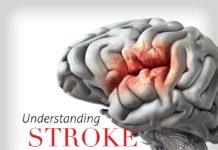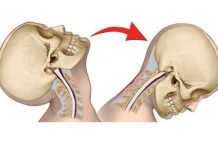Adverse Side Effects from Medication Are Common
Side effects from medication may be more common than believed. In a study of more than 600 adults, one of four experienced a potentially harmful side effect from a medication prescribed by a primary care physician. 1
“Of the adverse drug events, 13% were serious,” lead study author Tejal K. Gandhi, M.D., of the Division of General Medicine at Brigham and Women’s Hospital (Boston, MA) told Life Extension magazine. “About 1 in 10 could have been completely prevented, and another third could have been ameliorated (made less serious) had they been addressed more quickly.”
For their research, which was published in the April 17, 2003 New England Journal of Medicine, Dr. Gandhi and associates interviewed 661 patients 10-14 days after a visit to one of four adult primary care practices in Boston, MA. They questioned the patients about specific symptoms of potential medication side effects. If symptoms were present, the participants were further questioned about timing and any actions taken. The patients were then asked to read their medication bottle labels to the interviewer. This process was repeated two and one-half months later. At that time, a nurse also examined the medical records of the patients for any adverse drug events documented in the chart, including drug allergies and existing conditions. Of the 661 patients surveyed, 162 (25%) had adverse drug events. Twenty-four (13%) of these were serious, such as decreased heart rate, decreased blood pressure, or gastrointestinal bleeding. Twenty (11%) of the events were preventable and 51 (28%) were ameliorable. Eleven of the preventable or ameliorable events were considered serious.
“Of the 20 adverse drug events that were preventable, nine were due to the selection of an inappropriate drug, two to the wrong dose, and two to the wrong frequency of use,” the researchers reported. “Advanced systems of computerized medication ordering, such as those that check the dose of the drug, interactions with other drugs, and allergy to the drug, could have prevented 7 of the 20 preventable events (35%).”
Of the 51 ameliorable events, 19 (37%) were attributed to the patient’s failure to inform the physician of the symptoms. The other 32 (63%) were presumed to be related to the physician’s failure to respond to medication-related symptoms reported by the patient.
The number of medications that a patient took was significantly associated with the risk of having an adverse event. “The mean number of events per patient increased by 10% for each additional medication,” they wrote.
Most previous studies concerning adverse drug events were performed in hospitals rather than in outpatient settings. In one study, 6.5% of patients in a hospital had an adverse drug event, of which 28% were deemed preventable.2
“This study is important because it showed that adverse drug events were found in 25% of ambulatory patients, a rate five times as high as that found in another recent study of the community-living elderly,” said Dr. Gandhi. “We probably found such a high rate because we called patients directly, while other studies have relied mainly on chart review.”
—Marc Ellman, M.D.
References:
-
Gandhi TK, Weingart SN, Borus J, et al.
Adverse Drug Events in Ambulatory Care
N Engl J Med 2003 (Apr 17); 348 (16): 1556-64
-
Bates DW, Cullen DJ, Laird N, et al
Incidence of Adverse Drug Events and Potential Adverse Drug Events, Implications for Prevention
JAMA 1995 (Jul 5); 274 (1): 29-34







